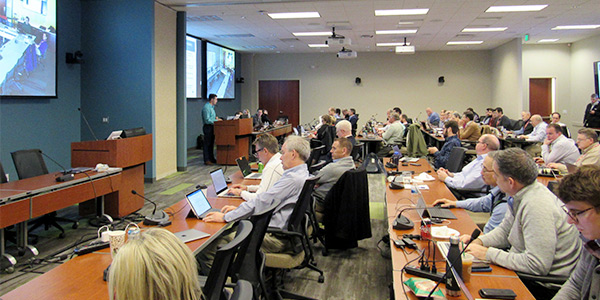By Amanda Durish Cook
CARMEL, Ind. — MISO will soon seek FERC approval for a proposal to tighten load-modifying resource accreditation standards for capacity auctions even as some stakeholders complain that the plan is too restrictive.
MISO’s proposal would base an LMR’s accreditation on the smaller of either its tested availability or an average of its actual availability over a three-year period. LMRs that can respond more often and with shorter lead-times will receive a larger capacity credit. (See MISO Eyes Cuts to LMR Capacity Credit.) The original proposal has been tweaked to allot full capacity credit to LMRs that can respond to 10 or more calls in a year.
Additionally, MISO will no longer qualify LMRs with lead times greater than six hours as emergency-only resources, although those resources will still be eligible to qualify as capacity resources. The RTO is analyzing whether these LMRs actually help mitigate emergency events.
Multiple stakeholders have said MISO’s late April filing goal is too impractical and aggressive. RTO staff disagree, noting the deadline is essential to implement the changes before the 2021/22 Planning Resource Auction offer window opens.
“It’s a missed opportunity in MISO’s view to make incremental improvements,” planning adviser Davey Lopez said of not pursuing the accreditation proposal now. He also pointed out that the RTO has altered the proposal to count only availability during daily peaks of the summer months for the three years, and not year-round daily peaks.
Stakeholders at the Resource Adequacy Subcommittee’s meeting Wednesday said the proposal seemed designed to punish LMRs.
“If you’re sitting in our seats, it’s absolutely punitive. … There’s a lot you could do before whacking capacity credits off our resources,” Madison Gas and Electric’s Megan Wisersky said. “I can’t help but think of the risk and reward of being an LMR in MISO. The risks and the potential penalties so far outweigh the benefits.”
Lopez reiterated that resources must be compensated based on their availability. He also said the proposal would cut down on the uncertainty that MISO control room operators currently face.
“Right now, we just don’t think there’s an incentive to update the values in the [MISO Communications System]. There’s no incentive to be available in fewer than 12 hours. … Those LMRs are compensated the same as LMRs with short lead-times,” Lopez said.
“The data our operators have shown is that they’re nowhere near” their reported availability, he added.





